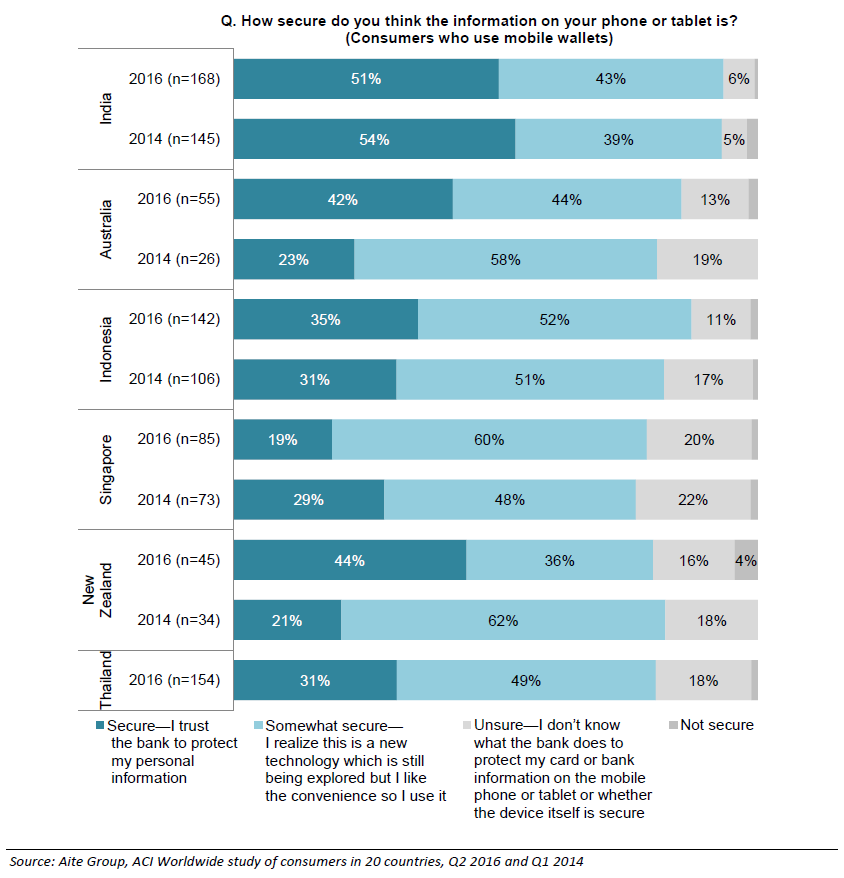Consumers in Asia Pacific still do not trust businesses with the security of their financial data, according to a recent report by ACI. However, interestingly, consumers report confidence in the security of e-wallet platforms.
In Asia Pacific, only 43% of consumers were confident in firms’ abilities to protect their personal and financial data against hacking attempts and data breaches. Although still indicating a general distrust, this is an improvement from 34% in 2014.
On the other hand, around 83% of consumers in Asia Pacific reported feeling at least somewhat secure with mobile wallets. India in particular stands out, with around 94% of consumers reporting they feel at least somewhat secure, compared to Indonesia (87%), Singapore (79%) and Thailand (70%).
 The study surveyed consumers in the Americas, EMEA, and the Asia Pacific region. Within Asia Pacific, consumers from Australia, India, Indonesia, New Zealand, Singapore and Thailand were surveyed.
The study surveyed consumers in the Americas, EMEA, and the Asia Pacific region. Within Asia Pacific, consumers from Australia, India, Indonesia, New Zealand, Singapore and Thailand were surveyed.
Mobile wallet adoption in Asia is generally much higher than in other parts of the world, especially in fast-growing economies such as India, Thailand, and Indonesia. However, the level of trust in e-wallets was generally lower in Asia Pacific (83%), compared to non-Eurozone EMEA (85%), the Eurozone (86%), and the Americas (92%).
Regions in Asia are generally leap-frogging traditional card infrastructure and usage patterns while adopting the latest technologies, adopting mobile-based peer-to-peer payments. Mobile devices also act as the primary access to the internet for many individuals and households. In many cases, individuals may carry multiple devices and thus have multiple wallets.
Across Asia Pacific, the standout fraud concern is theft by computer hacking (37% in Indonesia, 33% in India, 31% in Thailand). After experiencing fraud or a data breach, the majority of consumers indicated they would stop shopping with a given merchant (76% in Indonesia, 73% in India, 65% in Singapore).
Even though many institutions have some form of anti-fraud education and training, it does not seem to resonate with all consumers: Singapore, Australia, and New Zealand showed much lower levels of awareness of anti-fraud messages, with less than 50% of respondents in each country reporting they have seen some sort of anti-fraud education for 2016.
Further, the report indicates that the majority of consumers are very interested in receiving a call or SMS message to their mobile device to help mitigate fraud.
“This data is a further wakeup call to the broader payments industry, including merchants, banks and financial intermediaries, that we must proactively educate consumers about security measures that are in place—to allay consumer concerns, which will not only result in enhanced customer experiences, but also help to reduce fraud losses,” says Andreas Suma, vice president and global lead, fraud and data, ACI Worldwide.








